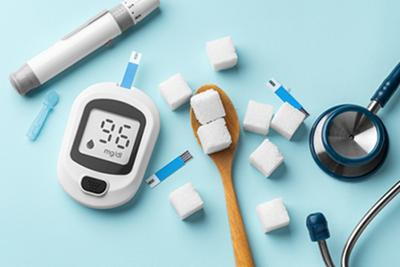
Diabetes refers to a group of diseases that push blood sugar levels to unhealthy levels, which is a health challenge faced by many individuals. As Dr. Juan Carlos Zubieta of the North Houston Diabetes Institute in Humble, TX, notes, although there are various types, Type 2 diabetes is the most prevalent form.
However, the good news is that a well-managed combination of strategic options can effectively guide you toward a healthy lifestyle that ultimately can help prevent complications.
Defining Diabetes
Diabetes, which can affect people at any age, is a condition when blood sugar rises to unhealthy levels. The condition develops when the pancreas doesn’t make sufficient insulin or the body isn’t responding properly to the insulin produced.
Over time, chronic high blood sugar can cause serious complications – such as nerve damage, cardiac disease, and eye conditions, which are usually irreversible.
Type of Diabetes
- Type 1 Diabetes – refers to a type of autoimmune disease that is generally identified/diagnosed in childhood.
- Type 2 Diabetes – when one’s body does not respond to or make enough insulin. This represents up to 95% of all diabetes cases.
- Prediabetes – the stage with higher blood sugar testing scores - prior to full-blown diabetes.
In addition, gestational diabetes and other more complex types are also present.
Symptoms That Should Lead to Diabetes Testing
If you experience any of the following, it is important to seek diabetes testing options –
- Increased thirst.
- Fatigue
- Dry Mouth.
- Slow healing.
- Frequent urination.
- Blurry vision.
- Weight loss that can’t be explained.
How is Diabetes Diagnosed?
Healthcare providers diagnose diabetes by checking your glucose level in a blood test.
- Random Test of Blood Glucose Levels – a simple finger prick calculates it in seconds.
- Fasting Blood Glucose Test –
- In-range (mg/dL) - Less than 100.
- Prediabetes (mg/dL) - 100 to 125.
- Diabetes (mg/L)- 126 or higher.
- A1c - provides an average blood glucose diabetes testing level for the past two to three months.
- In-range - Less than 5.7%.
- Prediabetes – 5.7% - 6.4%.
- Diabetes – 6.5% or higher.
However, an oral glucose tolerance test is typically done for gestational diabetes screening.
Managing Diabetes
Diabetes is complex, so managing it requires several individualized strategies that generally include –
- Routine blood sugar monitoring.
- Taking oral or injectable medications as directed by your healthcare provider.
- Using insulin.
- Proper diet and exercise lifestyle choices to maintain appropriate levels of–
- Blood pressure.
- Cholesterol.
- Weight.
- Limit alcohol intake
- Quit smoking.
- Get enough sleep/rest.
- Manage stress.
For more information on the screening and diagnosis of diabetes, contact Dr. Zubieta or a staff member at the North Houston Diabetes Institute in Humble, TX, at 832-644-9595 or online.
